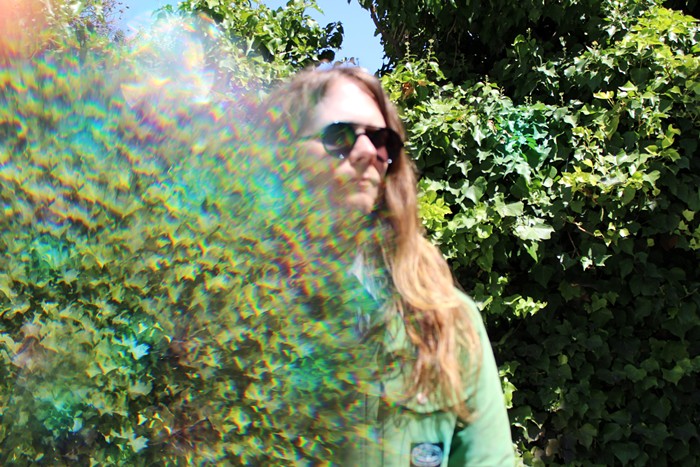PERHAPS EVERYTHING hinges on your definition of the word "punk." Spain's Delorean stripped themselves of that title in 2007, ending seven years of noise-making in the Basque DIY scene. (Although one could make a valid argument that it was precisely at that moment when the band actually earned the title.) Despite their tectonic sonic shift, the band kept their moniker as they expanded their sound in a way not advisable to most bands; at first it was the initial drift toward new wave keyboard pop, then Madchester disco, and eventually, complete immersion in European club music. Not since Germany's Notwist—who went from a pounding industrial act to the forefront of glitch-pop—has a band evolved so radically while keeping their name in the process.
"We're not part of any hardcore or punk scene anymore," explains bassist/singer Ekhi Lopetegi. "We were taught in hardcore bands but the hardcore scene got so ritualized that we just stopped caring. It was just boring and we started to get into club music, as well as any other music that would grasp our attention: pop rock, indie, dubstep, grime, hiphop, new age, folk, techno, bassline, booty... who cares about genres anymore?"
As the Avalanches' vinyl crates now collect a thick film of dust after years of neglect, Delorean forges ahead, paving a shimmering path that links the dancefloor to the stage, a symbiotic relationship between club beats and live band energy. In the wake of the Avalanches' Since I Left You, Delorean offers the best of both worlds: the DIY ethics of a former punk band—with a loose and confident stage presence—unafraid to push their sound to foreign territories.
Last year's Ayrton Senna EP was the initial ray of light, a sun-soaked exploration of Balearic beat, pulsating chamber disco, and vintage pop music, all capped by Lopetegi's eager vocals. This set the table for Subiza, their forthcoming LP and finest work to date. Named after a Basquien city where they recorded some tracks, Subiza is as vibrant a recording as you will find, an infinitely upbeat lush disco without the excess and guilt. "We never settle musically," says Lopetegi. "It's as if making a record was both a satisfying process and an unsatisfying one. In every record there are things you like and things you feel you would not have done otherwise. I don't really think there can be some sort of perfect satisfaction; that is what moves you in the end."
Lopetegi speaks of "hidden paths," how a band's musical shift can be traced to their open-ended source of influences. It works well with Delorean's massive range of sound—one frequent compliment is that the band offers an outsider's perspective to the otherwise stale, or at least unfamiliar, world of European club culture—as genre lines are smudged, and the finished product bleeds together into one immense collection of cohesive sounds. As tropical rhythms intertwine with their live band musicianship, Delorean expands on the templates previously set forth by the aforementioned Avalanches and Sweden's influential—everywhere but onstage, that is—Tough Alliance.
While Delorean draws from countless different sources, the music of Subiza is a something truly beautiful and entirely their own. "We're neither explicitly proud of our roots, nor do we hide anything," explains Lopetegi, before adding the cryptic explanation, "I'm not sure where, but we're somewhere else."



















